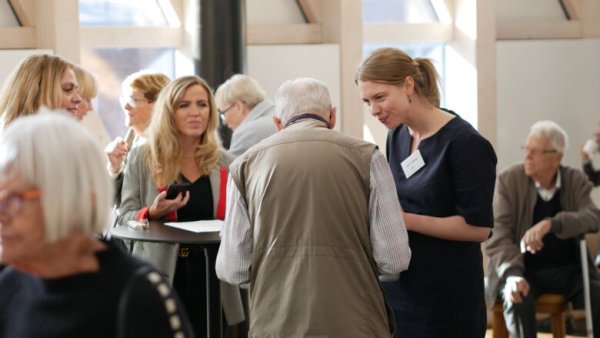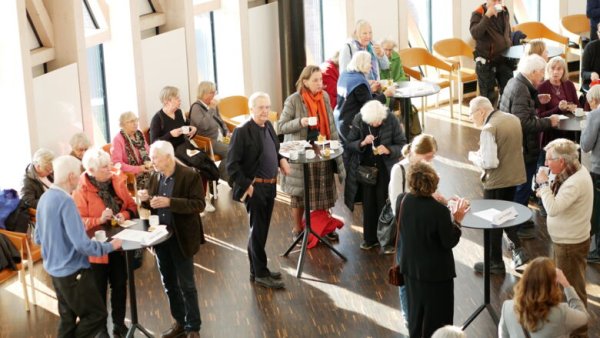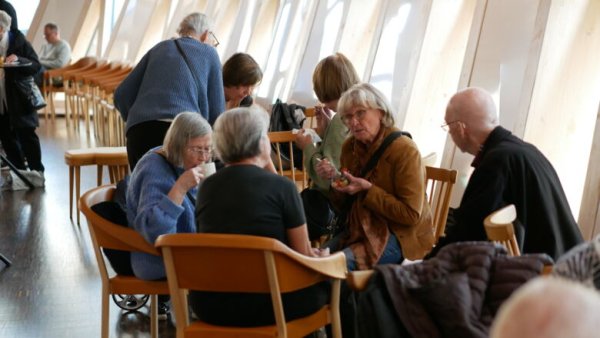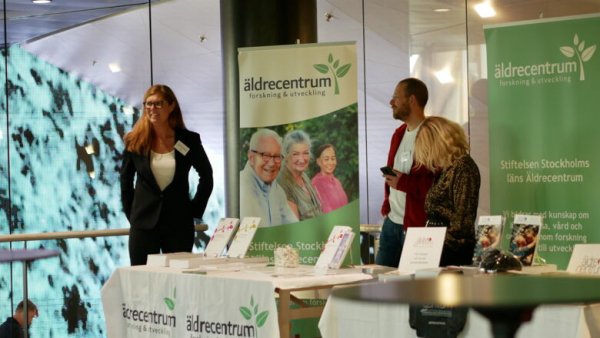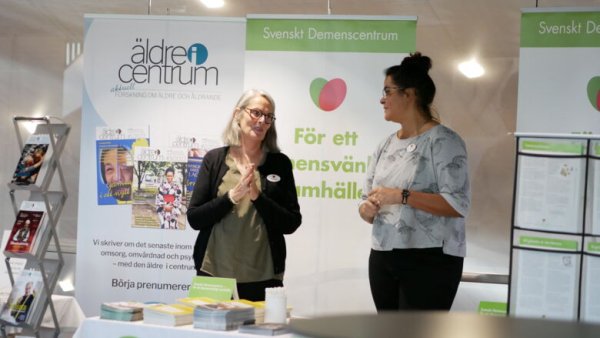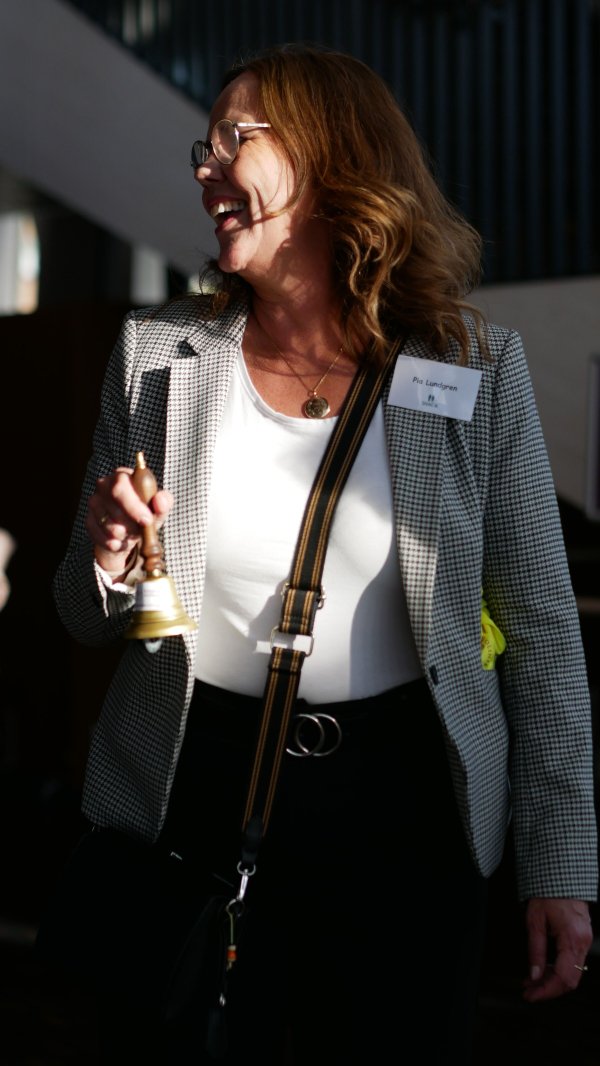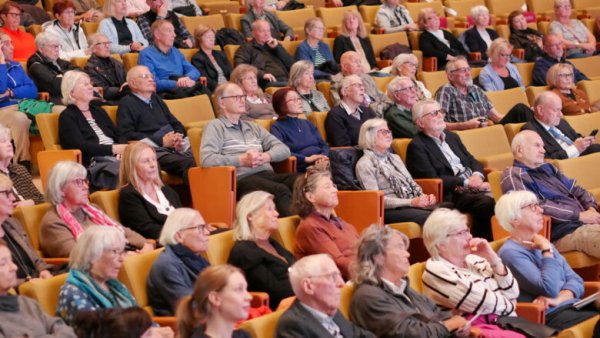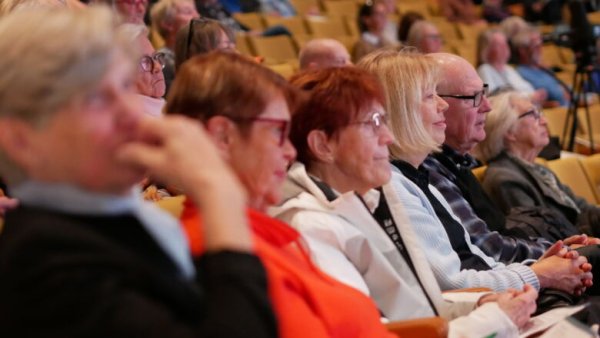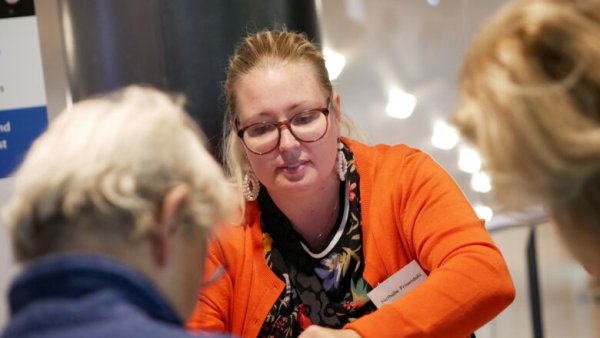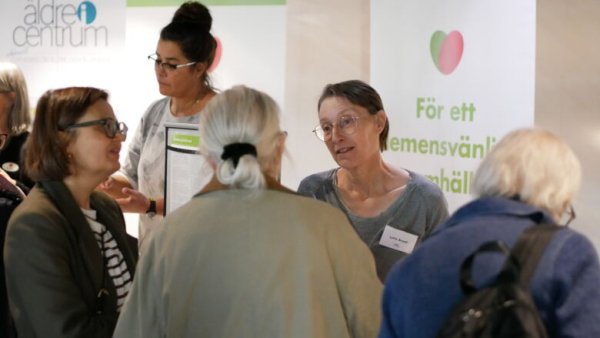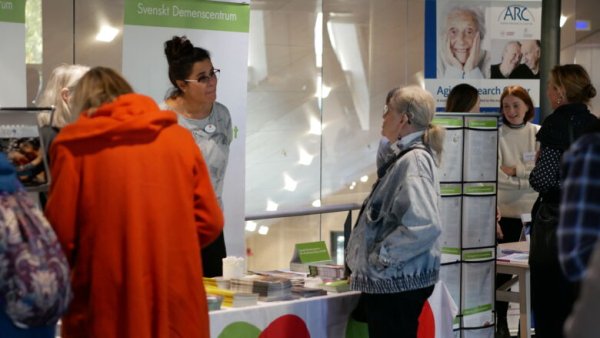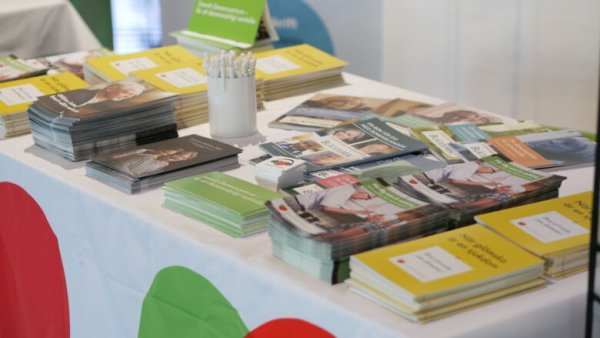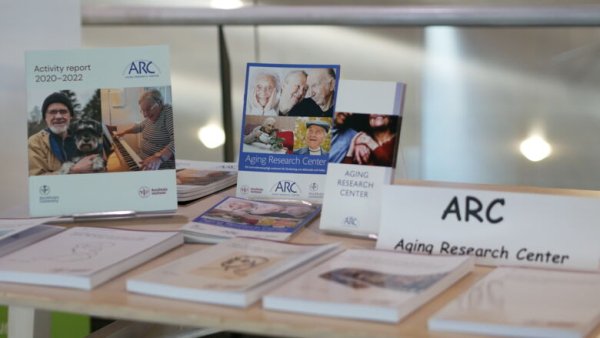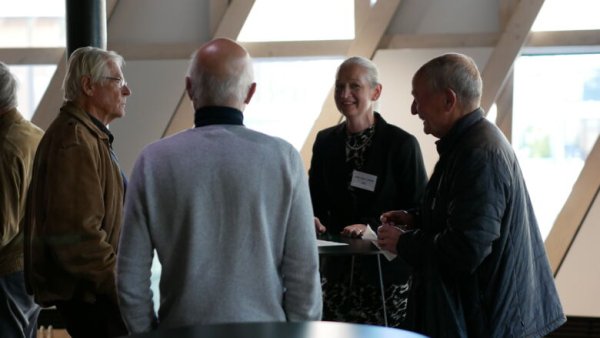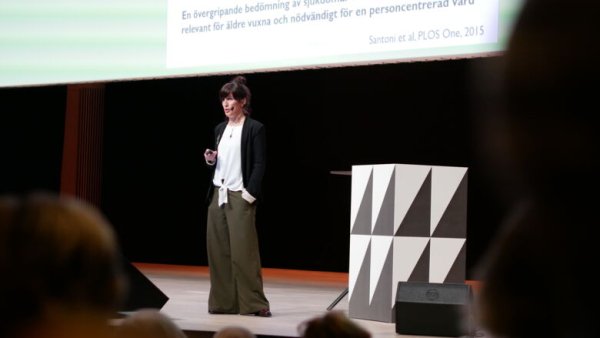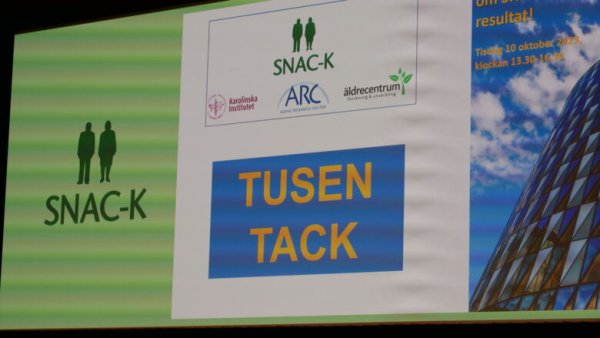A day in the spirit of ageing
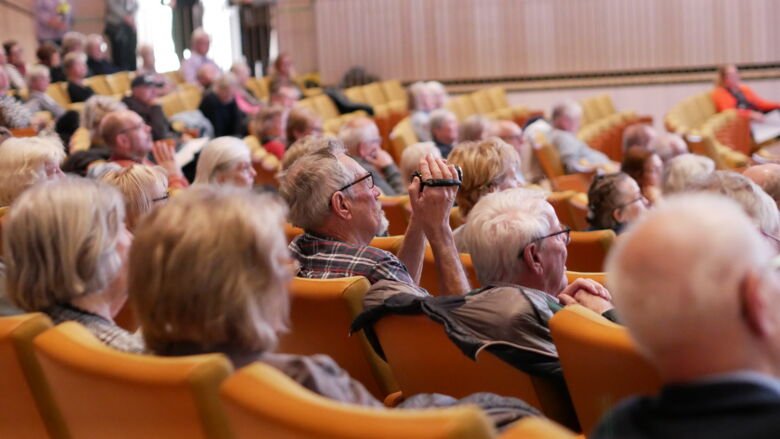
On a sunny afternoon in October, several hundred people gathered in the Aula Medica at Karolinska Institutet in Solna. Study participants in the extensive SNAC-K study had been invited by the Stockholm Gerontology Research Center foundation and Karolinska Institutet (KI) to hear about the latest research findings from the study.
SNAC-K is part of a major national research study initiated by the National Board of Health and Welfare in 2001. The researchers are following people aged 60 and over - the oldest is currently 104 years old - and their health as they age. The participants in the study have regular health checks where they meet with a doctor, nurse and test leader for cognitive testing and undergo several different tests. By autumn 2023, 4800 people had participated at least once in the study. SNAC-K has a catchment area on Kungsholmen and Essingeöarna.
In the past, study participants were typically invited for meetings every three years to interact with researchers, receive updates on the latest research findings, and pose their questions. Nevertheless, because of the pandemic, such gatherings have not occurred since 2018.
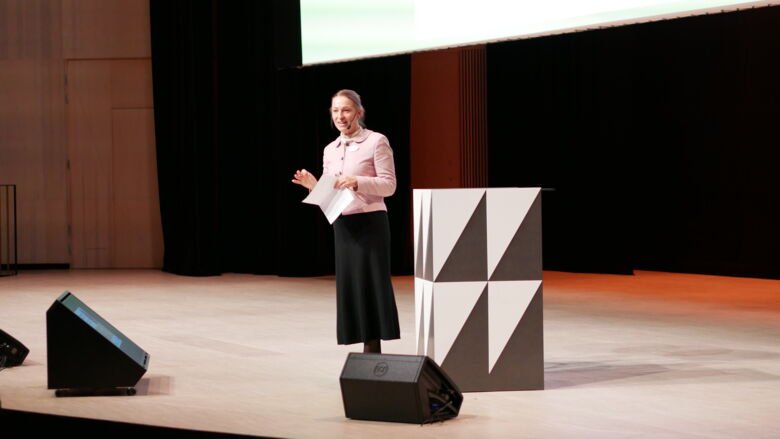
The afternoon featured a comprehensive programme, allowing participants to engage with researchers across a diverse range of research areas. Moderator Åsa Hedberg Rundgren, Director of the Stockholm Gerontology Research Center Foundation, took the lead and guided the audience through the various research areas.
The first speaker was Johan Sanmartin Berg, Professor of Applied Health Technology at Blekinge Technical University, and the National Coordinator for SNAC. He shared, among other things, the origins of SNAC and the fact that various SNAC projects are scattered locally in Skåne, Blekinge, Stockholm, and Nordanstig
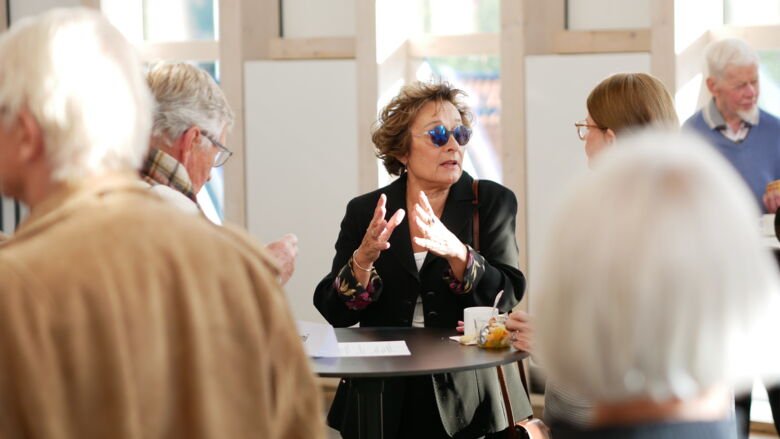
Laura Fratiglioni, Professor of Epidemiology at ARC and the Project Leader for SNAC-K, spoke on the topic of "Improving Health for Everyone: Enhancing Prevention Efforts and Healthcare Quality." She also mentioned her more than 30 years of work with the elderly on Kungsholmen. Initially, it was with the Kungsholmen Project (1987–2000), and subsequently with SNAC-K.
In brief, preventive strategies to reduce cardiovascular diseases and dementia involve promoting a healthy lifestyle, reducing the burden of vascular diseases (such as high blood pressure, diabetes, and obesity), and increasing brain reserve. She also pointed out that, for example, if one had little social activity when younger, it can be compensated for in older age.
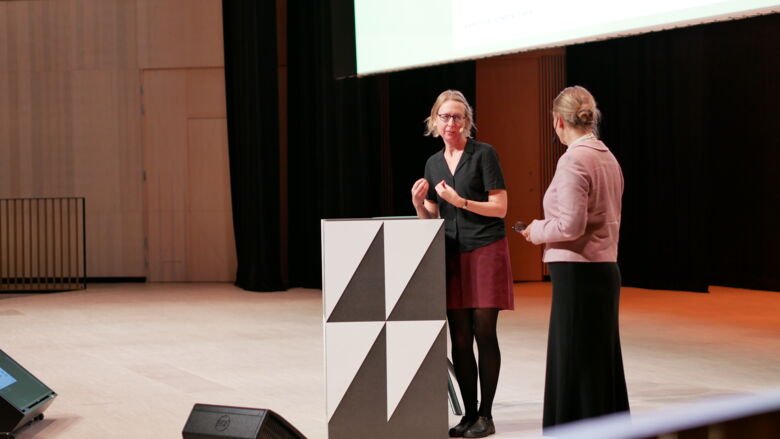
Erika Jonsson Laukka, a psychologist and associate professor at ARC, conducts research on topics such as olfactory impairment and cognitive aging. She explained the importance of our sense of smell in our daily lives and how it declines with age. In her research, Erika has found a connection between olfactory impairment and cognitive decline in aging, suggesting that a loss of smell could serve as an early warning sign of age-related health changes.
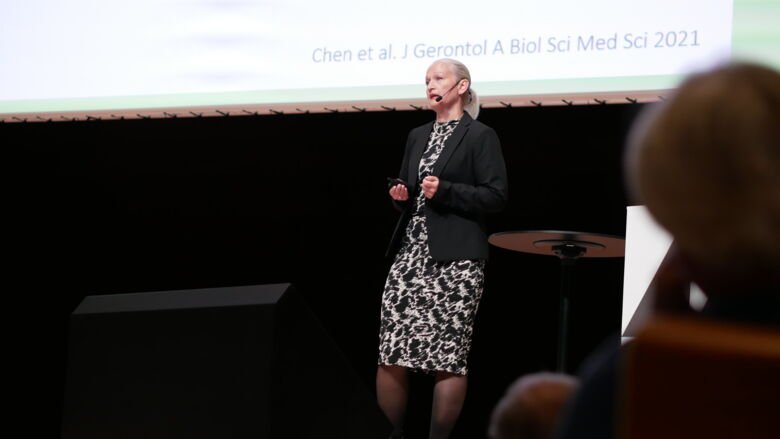
Anna-Karin Welmer, a physiotherapist, and associate professor at KI, as well as the deputy project leader for SNAC-K, discussed physical activity, sedentary behaviour, and health in later life. In a study where older individuals wore activity trackers for a week, it was revealed that women were slightly more active than men, and 80-year-olds were more sedentary compared to 60-year-olds. She emphasized that prolonged sedentary behaviour increases the risk of health issues, including cardiovascular diseases. She reminded the audience that any form of movement counts and that something is better than nothing.
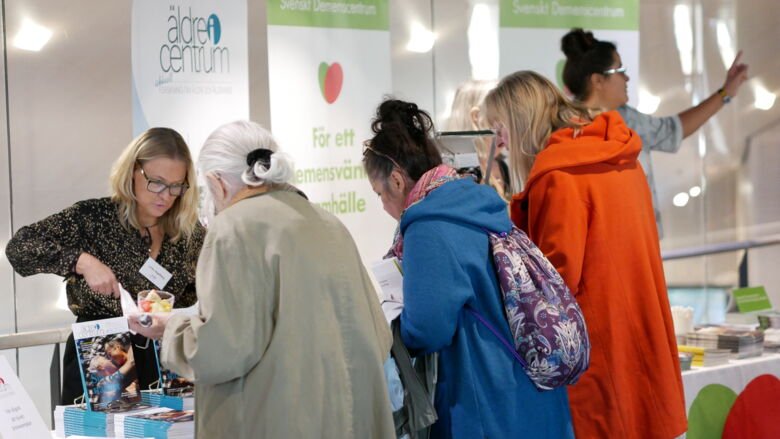
During the break, participants had the opportunity to converse with the researchers and visit the various exhibitor tables for additional information. The Stockholm Gerontology Research Center Foundation, the magazine "Elderly in Focus" (Äldre i Centrum or ÄiC), the Swedish Dementia Centre, and the The Aging Research Center (ARC) had their own book displays at the event.
The Aging Research Center (ARC) is a collaborative initiative between the Karolinska Institute and Stockholm University. It also serves as a division within the Institute of Neurobiology, Care Sciences and Society at KI, where some of the researchers involved in SNAC-K are based.
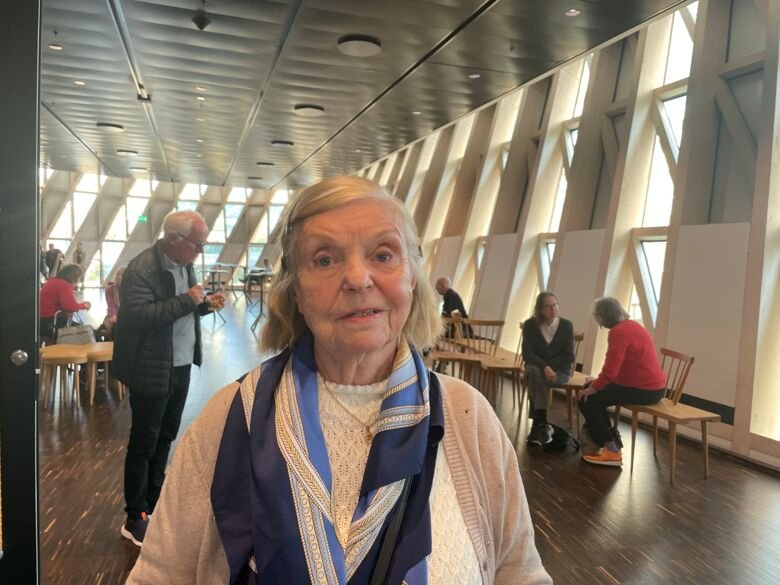
Myrna, a lively 87-year-old and one of the study participants, attended the event and listened throughout afternoon. She has been part of the study since 2003 and always makes it to these gatherings, which she finds interesting.
"I think it's wonderful,” Myrna says about her participation in the study. "I am especially pleased with the medical examinations and the thorough tests conducted, such as blood tests and blood pressure checks."
After the break, the programme continued in the Erling Persson Hall.
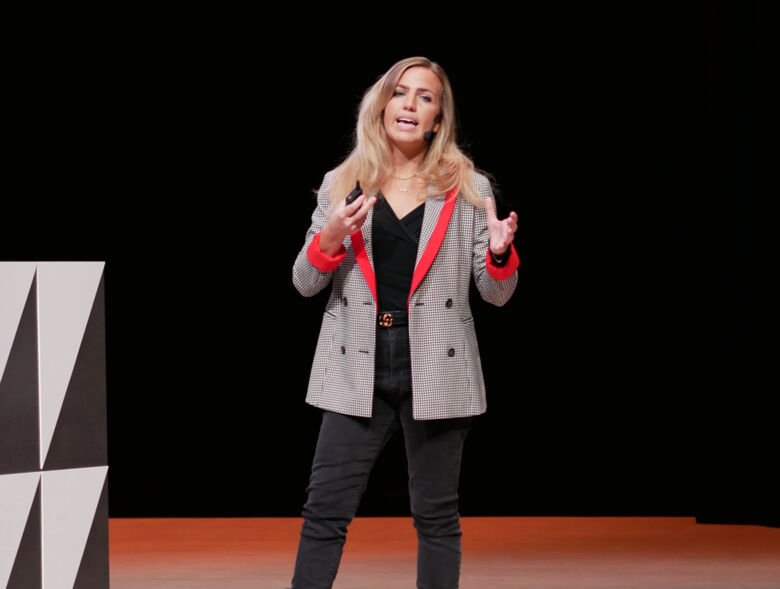
Giulia Grande, a doctor, and postdoctoral researcher at ARC, investigates air pollution and whether it can be a risk factor for dementia. The results clearly indicate that prolonged exposure to air pollution increases the risk of dementia by up to 70%. The biological cause is often that air pollution leads to an increased risk of heart disease and stroke, which, in turn, heightens the risk of dementia.
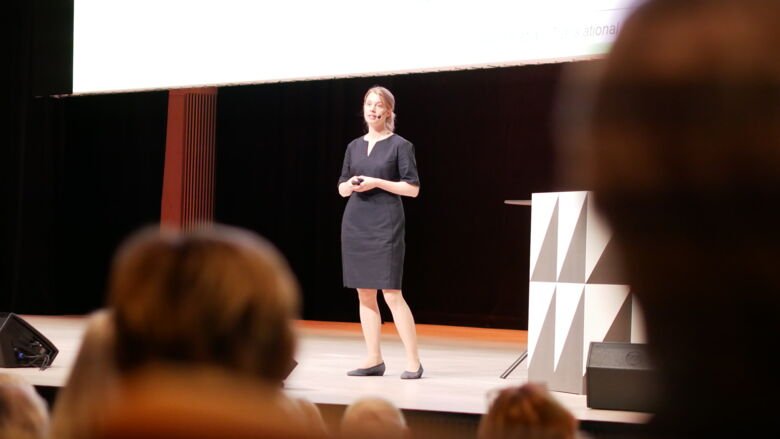
Linnea Sjöberg, a researcher at ARC, has examined depression in older adults. She has found, among other things, that the prevalence of depression increases with age among older people and that physical ailments can be linked to an increased risk of depression and a lower rate of recovery. Having a robust social network and engaging in physical activity contribute to a higher rate of recovery from depression.
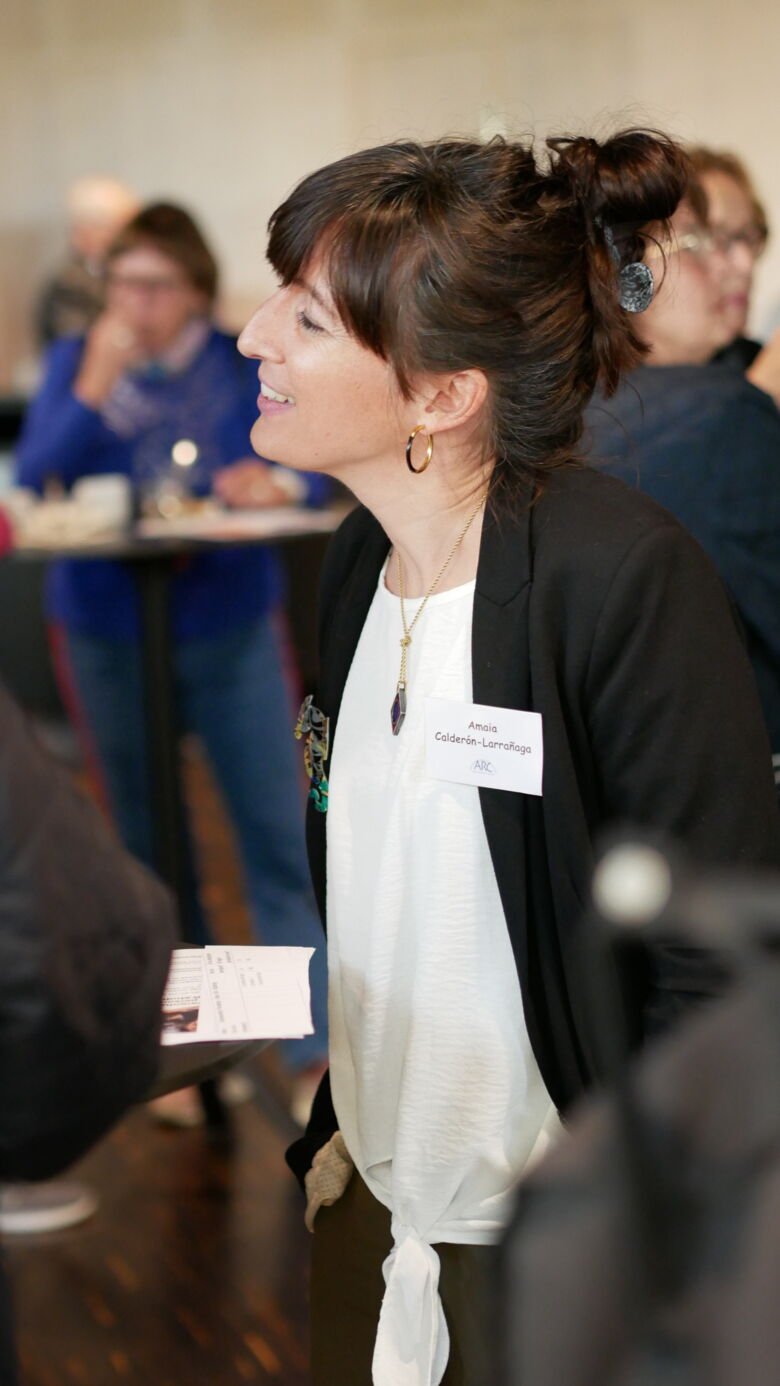
The last speaker was Amaia Calderón-Larrañaga, a public health specialist, associate professor at ARC, and deputy project leader for SNAC-K. She introduced the Health Assessment Tool (HAT), a health monitoring tool under development, with the aim of tracking the health status of older individuals and monitoring negative changes early. The tool displays various health indicators related to ageing. The outcome takes the form of a curve that could be monitored in healthcare centres, similar to how children's growth curves are followed in child healthcare centres today. Five healthcare centres, three of which are in Stockholm, are currently collecting data for the tool in 2023, and at the end of the year, interviews will be conducted with healthcare centre staff to assess their experiences with the tool.
The audience was curious, and more participants seized the opportunity to ask questions about the various research topics after each presentation.
All the researchers took the chance to express their gratitude to the participants for their involvement in the study and emphasized the significant contribution they make to research and, therefore, the development of public health among the elderly.
We all look forward to the next gathering in three years.
Meeting coordinators for the SNAC-K Participants' Day 2023: Gunilla Svanhagen, Stockholm Gerontology Research Center (Äldrecentrum), and Maria Wahlberg, Aging Research Center (ARC)/KI.
A subtitled version of the film will be available shortly.
Program for SNAC-K's Proband Day 2023
Välkomna!
Moderator: Åsa Hedberg Rundgren, medicine doktor och direktör för Stiftelsen Stockholms läns Äldrecentrum
"SNAC-Kungsholmen en del av en nationell studie"
Johan Sanmartin Berglund, läkare, professor, nationell samordnare för SNAC
"Bättre hälsa för alla: Öka preventionsinsatser och vårdkvalitet"
Laura Fratiglioni, läkare, professor och projektledare för SNAC-K
"Luktnedsättning och kognitivt åldrande"
Erika Jonsson Laukka, psykolog och docent
"Fysisk aktivitet, stillasittande och hälsa på äldre dagar"
Anna-Karin Welmer, sjukgymnast, docent och vice projektledare SNAC-K
Paus
Mingel med forskare från Aging Research Center(KI) och medarbetare från SNAC-K, Äldrecentrum och Svenskt Demenscentrum
"Luftföroreningar och demens"
Giulia Grande, läkare, medicine doktor och postdoktor
"Depression hos äldre"
Linnea Sjöberg, medicine doktor och forskare
"Health assessment tool (HAT): dåtid, nutid och framtid"
Amaia Calderón-Larrañaga, folkhälsospecialist, docent och vice projektledare för SNAC-K

